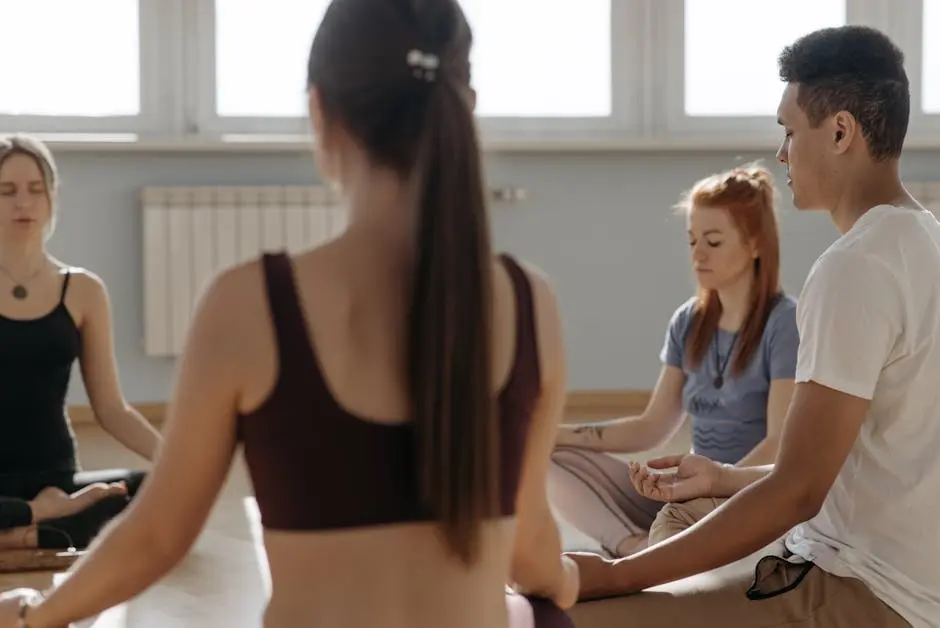Diving into the world of mediation can be both exciting and daunting for aspiring professionals. Mediation skills are invaluable, promoting effective communication and conflict resolution. Whether you’re new to the field or looking to enhance your expertise, choosing the right classes is crucial. Here, we’ve outlined the essential mediation classes that will help build a solid foundation and set you on a path to success.
1. Understanding Conflict Dynamics
A foundational class that introduces the complexities of conflict and teaches the core principles of managing and resolving disputes. This course is essential for grasping how conflicts arise and how to approach them constructively.
Understanding the root causes of conflict and the dynamics involved is crucial for any aspiring mediator. Conflicts can emerge from a myriad of factors, such as communication breakdowns, cultural misunderstandings, and emotional triggers. By studying conflict dynamics, you’ll learn how to identify the underlying issues that often go unnoticed on the surface. This understanding forms the backbone of any effective mediation process, making it possible to resolve disputes before they escalate. Additionally, by addressing conflict dynamics, mediators can create an environment where all parties feel heard and valued.
2. Effective Communication Techniques
Communication is at the heart of mediation. This class focuses on developing active listening skills, understanding body language, and employing techniques that facilitate clear and empathetic dialogue.
The significance of active listening cannot be overstated in mediation. This technique not only involves hearing words but understanding the emotions and intentions behind them. Active listening, complemented by empathic responses, allows mediators to build trust and rapport, essential elements in conflict resolution. Furthermore, recognizing non-verbal cues such as body language and tone can provide insights into the emotional state of the parties involved. This awareness enables mediators to guide conversations more effectively, ensuring each participant feels acknowledged and understood.
In addition to classic communication strategies, this class explores modern digital communication tools crucial in today’s virtual mediation settings. As online disputes become more common, understanding how to foster effective communication through screens is becoming increasingly important. By mastering these tools, you’ll be ahead in facilitating productive discussions remotely, an indispensable skill for the modern mediator.
3. Negotiation Strategies for Mediators
Learn the art of negotiation and how to guide parties toward mutually beneficial solutions. This class covers key strategies that enhance your ability to handle negotiations within a mediation context effectively.
Effective negotiation lies at the core of successful mediation. Key strategies taught in these classes include interest-based negotiation, where mediators focus on the underlying desires and needs rather than positions. This approach helps in crafting solutions that satisfy all parties involved. You’ll also learn about the importance of BATNA—Best Alternative to a Negotiated Agreement—which guides parties in understanding their options outside the current negotiation, thereby fostering realistic expectations. Understanding such strategies will enable you to address complex disputes more confidently and creatively.
4. Cultural and Diversity Sensitivity
Understanding and respecting cultural differences is vital in mediation. This class emphasizes the importance of cultural awareness and its impact on communication and conflict resolution.
Diversity in the workplace and society plays a significant role in conflict resolution processes. A mediator’s ability to navigate cultural nuances can influence the success of the mediation process significantly. In this class, you will explore frameworks for understanding and managing cultural differences, which include high-context versus low-context communication styles and various cultural value systems. With globalization, mediators need to approach every mediation with an expansive view, prepared to bridge gaps and foster mutual respect and understanding among parties from diverse backgrounds.
5. Emotional Intelligence in Mediation
Mediators must navigate a range of emotions during the dispute resolution process. This class trains you to recognize and manage emotions, both your own and those of others, to maintain a constructive mediation environment.
Emotional intelligence (EI) is a cornerstone of mediation. It encompasses the ability to perceive, control, and evaluate emotions of both oneself and others. This class focuses on developing high EI, providing tools to manage emotionally charged situations with calm and empathy. By enhancing skills such as emotional regulation and empathy, mediators can prevent heightened emotions from derailing discussions. Incorporating emotional intelligence into mediation practice also promotes a greater understanding between parties, facilitating resolutions that are both equitable and sustainable.
6. Advanced Mediation Techniques
Building on foundational skills, this advanced class dives deeper into unique approaches and techniques used in complex mediation scenarios. It’s perfect for those looking to refine their methodology and elevate their practice.
In the advanced techniques class, seasoned mediators explore specialized forms of mediation, such as shuttle diplomacy and transformative mediation. These approaches enable mediators to handle more intricate disputes, ranging from high-stakes business negotiations to deeply personal family conflicts. With a strong emphasis on team-based mediation techniques, mediators are equipped to work collaboratively with other professionals to bring about resolutions. Each session includes real-world case studies, ensuring that participants can relate theoretical concepts to practical outcomes. This in-depth exploration enhances one’s capability to adapt and innovate in the field.
7. Practical Mediation Workshops
Hands-on workshops provide a crucial opportunity to apply learned skills in simulated settings. Engaging in real-life scenarios helps build confidence and prepares you for actual mediation sessions.
Practical workshops are invaluable components of any mediation training program. These sessions offer a sandbox environment for aspiring mediators to test their skills and strategies before implementing them in real-world situations. Workshops typically involve role-playing with actors simulating conflict scenarios, enabling mediators to practice conflict-resolution techniques in a controlled setting. Feedback from peers and instructors during these sessions is instrumental in refining one’s approach. By working through these rehearsed conflicts, you’ll be prepared to face the challenges of live mediation with greater assurance and competence.

